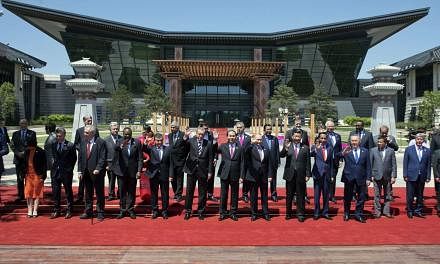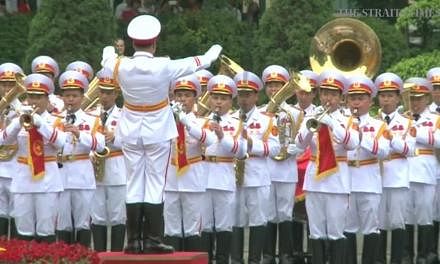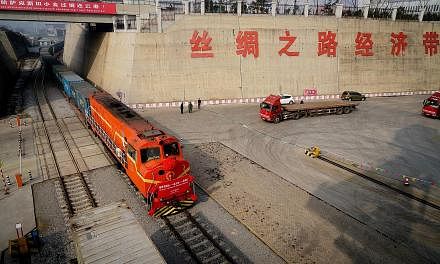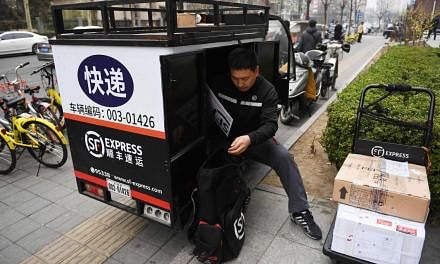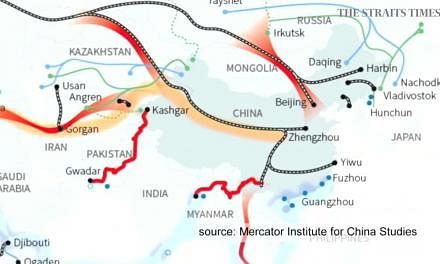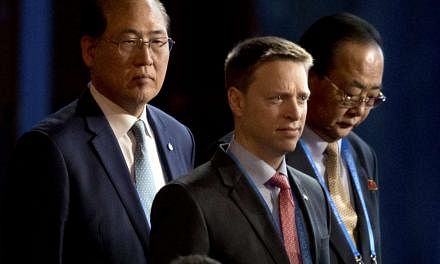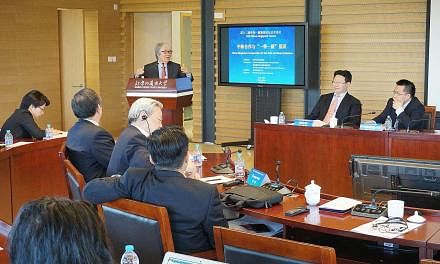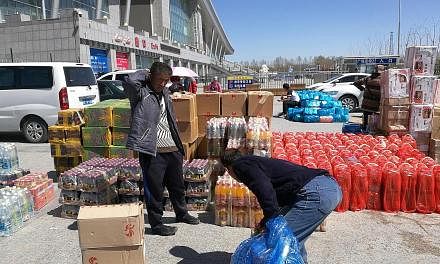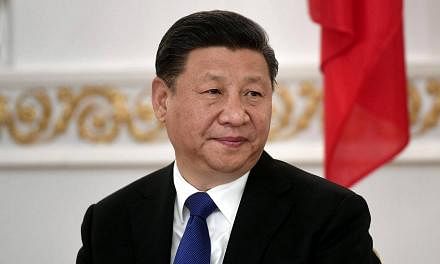China's ambitious Belt and Road Forum drew to a close yesterday with a slew of deals and the promise of a new door opening to global trade.
At a time when the United States is pursuing an "America First" policy, Chinese President Xi Jinping shepherded a communique in which 30 nations vowed to promote a rules-based trading system and greater openness.
Stressing the importance of a level playing field for trade and investment, Mr Xi said: "It is our hope that through the Belt and Road development, we will unleash new economic forces for global growth."
China signed cooperation deals with 68 countries and international organisations during the two-day forum, yielding a list of 270 deliverables in areas such as policy coordination, infrastructure building, trade, investment and finance.
Mr Xi also announced that the next Belt and Road Forum will be held in 2019.
Touted as the biggest diplomatic event initiated by China, the inaugural forum was attended by 1,500 delegates from more than 130 countries to discuss Mr Xi's mega project to revive two ancient trade routes via land and sea.
Mr Xi mooted the initiative four years ago as a way to boost growth for China and its neighbours by building roads, railways, ports and industrial parks along the trade routes.
Speaking to reporters at the Yanqi Lake resort, the forum venue on the outskirts of Beijing, Mr Xi said that the gathering had sent a "positive message" to the rest of the world.
Many countries walked away from the forum with numerous deals sealed. Malaysia signed nine memorandums of understanding and agreements with China, including several new commercial deals worth more than US$7.22 billion (S$10.1 billion). The biggest was for a US$3.46 billion project to set up a futuristic robotic hub in Johor.
Indonesia signed three agreements with China, including a loan worth US$4.48 billion from the China Development Bank for the Jakarta-Bandung high-speed rail project.
"The Belt and Road development does not shut out, nor is it directed against, any party," said Mr Xi.
The leaders agreed to promote a trading system with the World Trade Organisation at its core.
They noted the challenges faced by the world economy and welcomed the initiative to improve connectivity between Asia and Europe.
They also said that it is important to expand trade and investment based on market rules and universally recognised norms.
The communique also urged countries that have signed on to the Paris climate change agreement to implement it fully.
Mr Xi reiterated that the initiative is an "open and inclusive platform for development", adding: "We will not base cooperation on ideological ground, nor will we pursue any political agenda or make any exclusive arrangement."
Despite China's pledges of inclusiveness and a level playing field for all, there are concerns over transparency issues and the country's growing clout and its intentions.
Germany asked for more transparency. India, meanwhile, refused to attend the forum because one of the Belt and Road projects passes through Kashmir and Pakistan. The two South Asian neighbours have fought two wars over the disputed Kashmir region.

